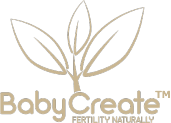
Treating People Not Symptoms – From Pharmacist to Naturopath
13 Nov 2023
Hormones play a fundamental role in both male and female fertility. And hormonal imbalances can profoundly affect your ability to conceive and maintain a healthy pregnancy.
Factors such as poor diet, environmental toxins, stress and lack of exercise can all negatively influence the delicate hormonal balance that is required for your health and fertility.
Here are 5 lifestyle changes you can make to help keep your hormone levels balanced:
1. Eat a Healthy, Nourishing Diet
A healthy diet is such an important part of fertility and wellbeing, so it’s important to understand the basics of what constitutes a ‘healthy’ diet.
The best way to get your head around all this is to think about food /drink as signalling molecules providing ‘information’ for your genes, cells, tissues, organs and hormones. In the context of fertility think of egg and sperm cells, as well as ovaries and testes.
Sugar, processed food / drinks, trans fats and alcohol are considered ‘bad/unhealthy/inflammatory’ because they make our cells produce inflammatory substances to try to protect themselves from these foreign, destructive, invading signals.
Have a read of my blog “Best Pregnancy Diet for Improved Fertility” as it explains all this.
A colourful, varied, whole food – mostly plant-based diet with enough good quality protein, good fats and plenty of fish, will send the right signals to all your cells so they feel nourished and more able to do the job they were designed to do – and hence improve your overall health and fertility.
Following a Mediterranean diet for at least 6 months prior to conceiving has been shown to improve conditions such as PCOS, recurrent miscarriage, endometriosis, and increase the chance of a successful pregnancy and live birth.
2. Minimise Your Exposure to Endocrine (Hormonal) Disrupting Chemicals
Over the past few decades, scientists have been reporting on the worrisome increasing trend of human infertility rates. They discovered certain environmental chemical substances disrupt normal hormonal balance, resulting in many different types of hormonal, reproductive and fertility conditions in men, women, children and particularly the growing foetus.
Exposure to chemicals found in plastics, processed foods and cleaning products such as phthalates, dioxin, PFC and BPA, have been linked with thyroid disorders, repeated miscarriage, endometriosis, PCOS, low ovarian reserve, low semen quality, birth defects and childhood learning disorders.
The best way to avoid exposure to these chemicals is by:
- Eating local, organic food wherever possible
- Drinking filtered water
- Not eating or drinking anything that was stored or heated in a plastic container
- Refraining from using cosmetics and perfumes with chemicals such as phthalates and glycol ethers
- Replacing ‘non-stick’ PFTFE or Teflon-coated cookware with ceramic coated, cast iron or stainless-steel options
3. Heal your Gut
Our digestive system is constantly communicating with our brain as well as our hormonal system. So, the health of your gut is integral, not only for your mental health but also for hormone balance.
Our gut microbiome (microorganisms that live in our large intestine) have a significant role in communicating with and sending signalling messages to our organs to help keep us healthy and maintain hormonal balance.
Low numbers of these good bugs in our gut (dysbiosis), will cause mood and hormone imbalance as well as reproductive issues including PMS, PCOS, Endometriosis, Miscarriage, high/low Oestrogen and Testosterone levels, Acne, Anxiety and Depression.
My blog ‘What is the Microbiome and how does it influence fertility’ discusses this in detail.
The best way to improve your microbiome is to make sure your diet includes:
- Fibre from a colourful variety of different plant foods – fruit, veggies, nuts, seeds, whole grains
- Cruciferous vegetables – broccoli, cabbage, radish, brussels sprouts
- Fermented foods/drinks – sauerkraut, kimchi, natto, kefir, tempeh
4. Manage your Stress
Besides work and general life stresses, trying to get pregnant can be difficult and extremely stressful!
Our hormones have a profound effect on our mental, physical and emotional health.
Constant stress, or insufficient sleep, will disrupt our hormonal communication and set off a cascade of hormonal imbalance, affecting our inherent rhythm – leaving us feeling wired, tired and open to metabolic and reproductive issues which interfere with our health and fertility.
In women, continued stress causes a suppression of oestrogen and progesterone, leading to a disruption of the normal menstrual cycle as well as ovulation, fertilisation and implantation problems.
Stress in men has been known to decrease semen quality and quantity.
Here are some ways you can reclaim your ‘hormone inner balance’ and realign with your own personal rhythm:
- Mindfulness meditation and guided visualisation.
- Yoga, Tahi Chi
- Spending time in sunlight and in nature
- Consistent, adequate (7-9hrs) good quality restorative sleep.
- Regular massage
- Moderate, gentle exercise.
- Herbal teas such as Chamomile, Lemon balm, Passionflower, Lavender
5. Keep Moving
Exercise and physical activity influence hormonal health immensely.
Besides improving blood flow to your muscles, regular exercise will help regulate the hormones that influence ovulation and the menstrual cycle in women, and sperm quality and quantity in men.
Daily exercise also helps to prevent insulin resistance – a metabolic condition associated with PCOS and known to affect fertility as well as egg and sperm health.
A healthy regular exercise regime should include:
- At least 40-50 minutes of moderate intensity exercise at least 5 x/week of whatever exercise you enjoy. Walking/swimming/riding/dancing/rowing/yoga are all great.
- Also weights and resistance workouts at least 2-3 times a week.
I hope you now feel empowered to refine those areas in your life you have control over, so you improve your hormonal balance and can look forward to conceiving and having a healthy pregnancy.
And if you are interested in understanding how Hormone Imbalance affects Your Fertility, please read my previous blog.
Joanne Lipinski – Fertility Naturopath Melbourne
